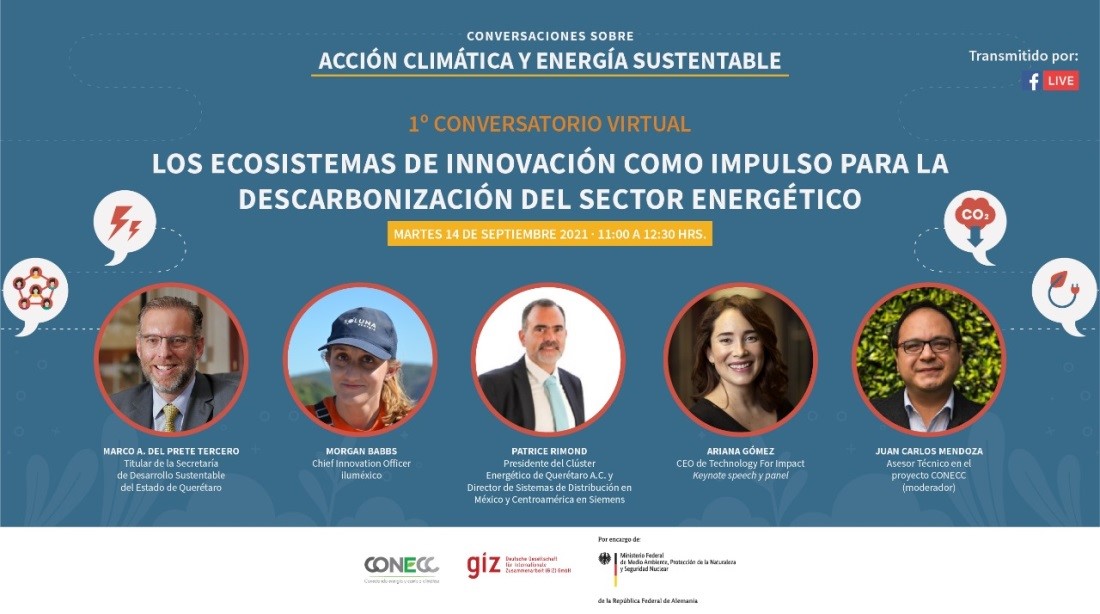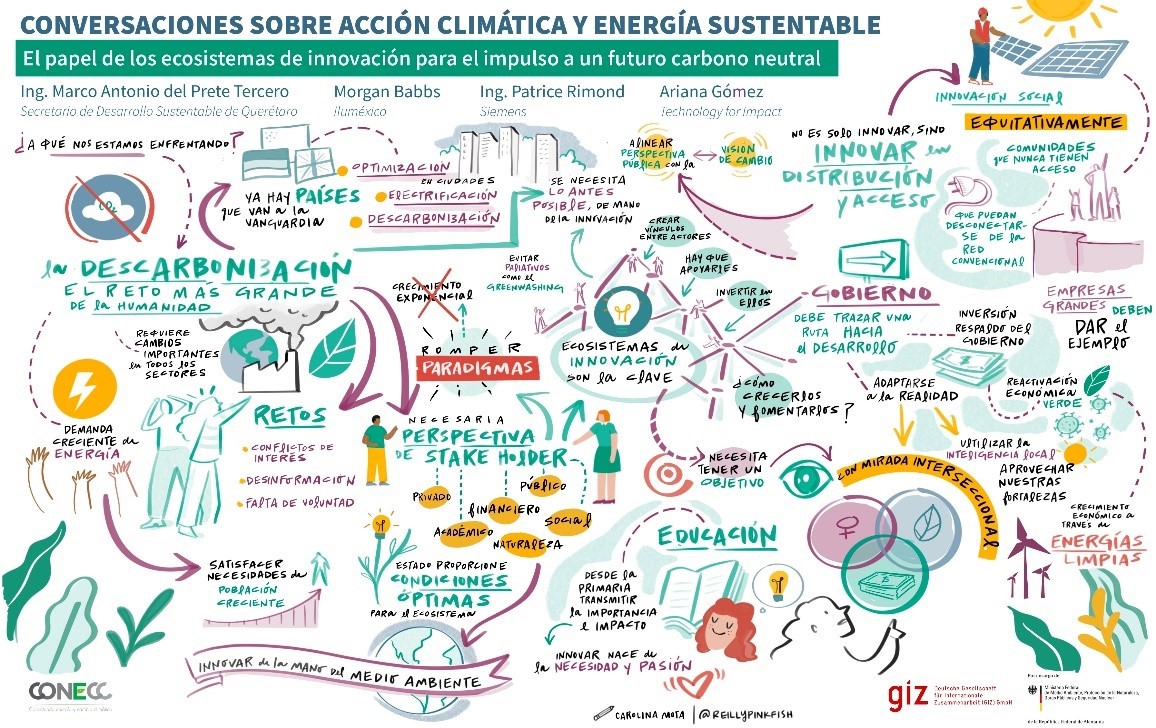Currently, the world faces complex global problems, which require new actors and partnerships that support the creation of adaptation solutions to these challenges. We have recently observed that non-traditional and innovative methodologies and actors, such as start-ups and other members of innovation ecosystems, are increasingly supporting international cooperation. They have been able to identify and create new opportunities for the generation of disruptive solutions for the sustainability of development.
Thus, in 2020 the project Enhancing the Coherence of Climate and Energy Policies in Mexico (CONECC), together with the Raw Materials and Climate (MaPriC) project in Colombia, coordinated the work of the Regional Dialogue on Innovative External Cooperations Workstream in the framework of the Sector Network for Environmental Management and Rural Development in Latin America and the Caribbean (GADeR-LAC) of GIZ. The work of this group focused on the development of research on sustainable development programmes and projects that use or have used innovative mechanisms in their planning, development and implementation processes. The purpose is to perceive the impact that external actors generate, as well as the innovative tools for the sustainability of international cooperation, and their influence on the work carried out by GIZ in the Latin American region.
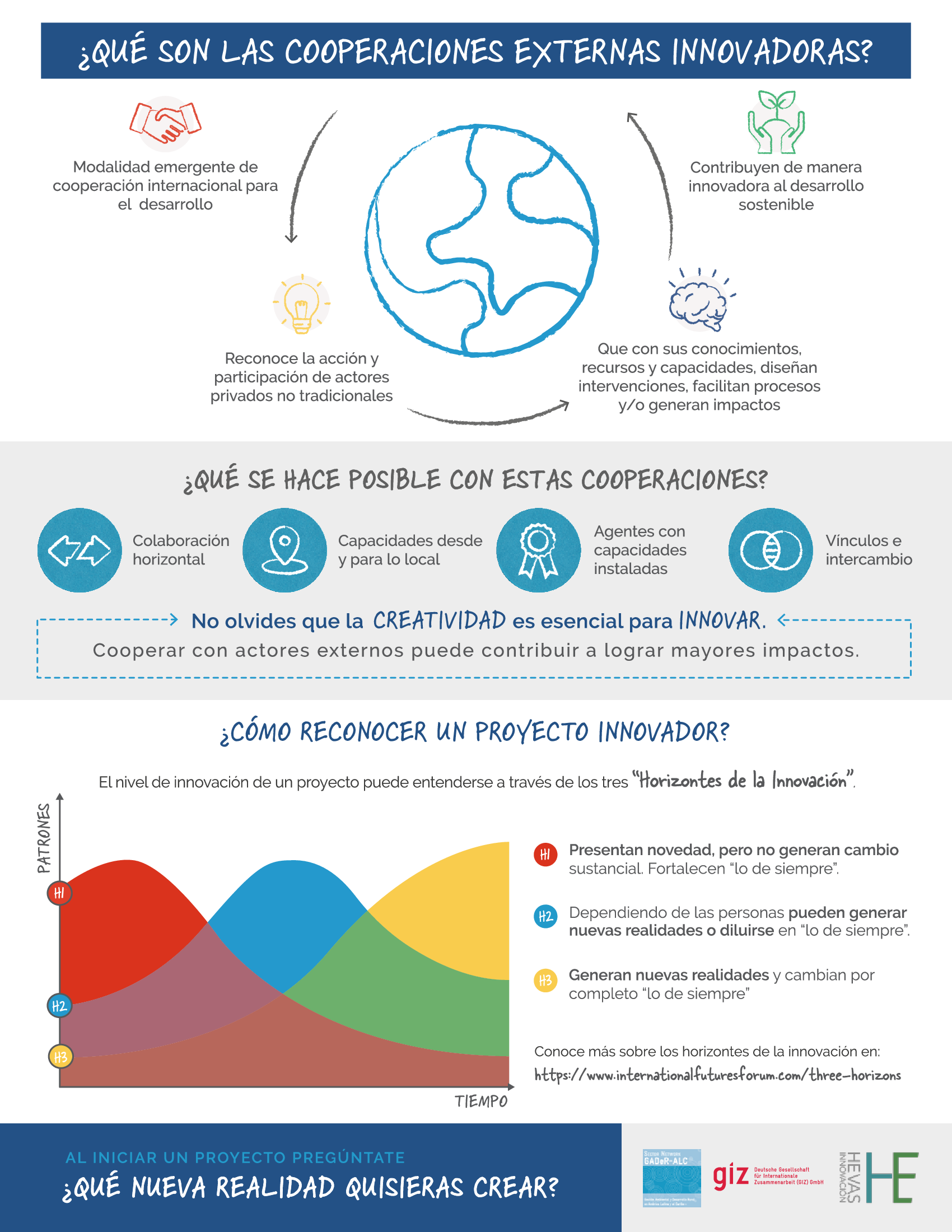
The study began with an incubation process, which later gave rise to research through exchanges and interviews with actors and internal and external projects in Latin America and Germany. These actors are distinguished by: the use of innovative methodologies that permit collective decision-making and the design of collaborative and agile strategies; collaboration with private actors that contribute to the work of GIZ as hubs and innovation laboratories, start-up accelerators, and more and, finally, in the identification of environmental, social and economic impacts–the results of which are derived from the first two categories. From this, 32 actors and projects were selected for research. The work carried out in this work stream was developed between April and March 2021 with the support of Hevas Innovation.
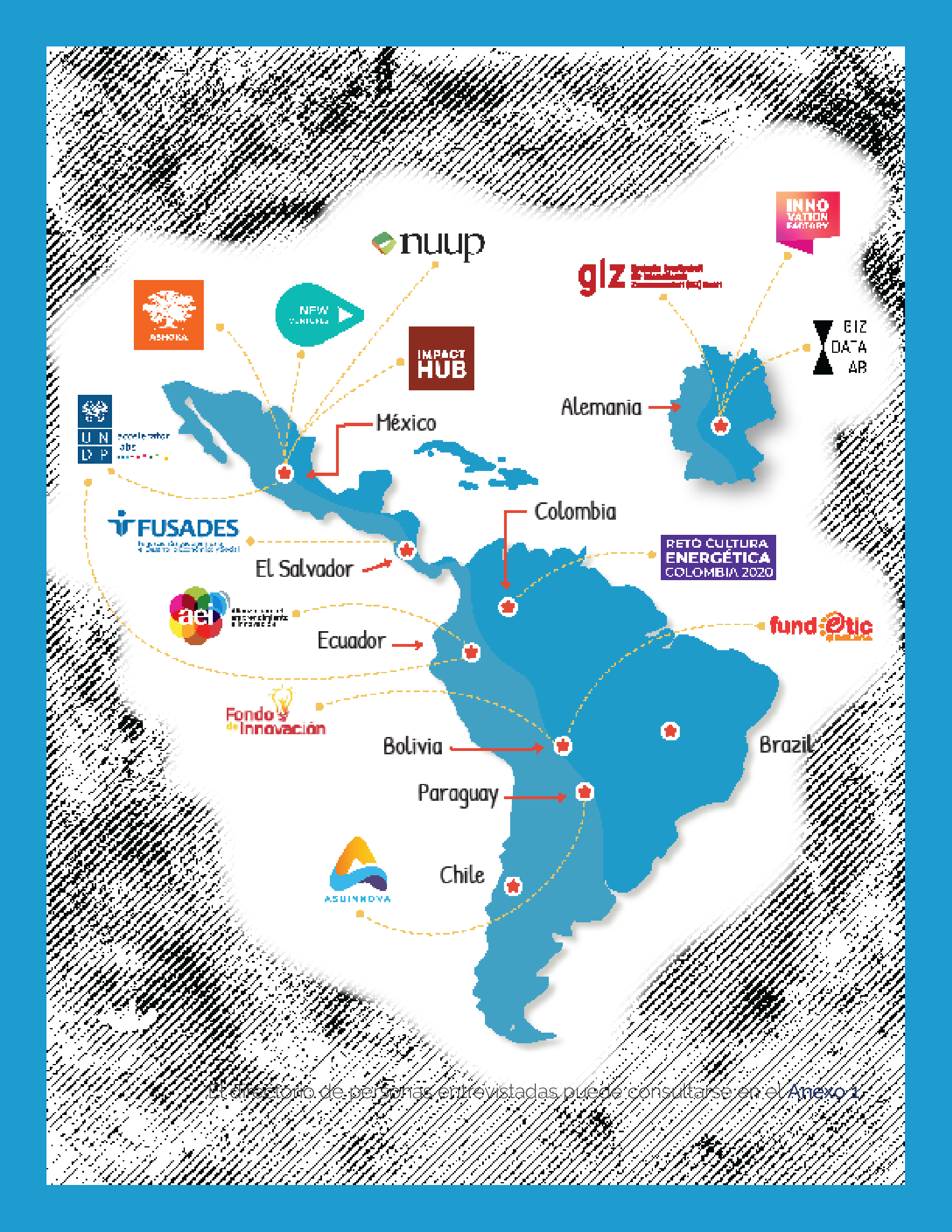
This resulted in these collaboration schemes and examples of inspiring and innovative stories within GIZ: the Bolivian Innovation Fund, the Entrepreneurship and Innovation Alliance in Ecuador and the Technological Innovation Hub in Querétaro HUBIQ, as well as projects external to GIZ such as Koga, nuup and Viwala, among other actors.
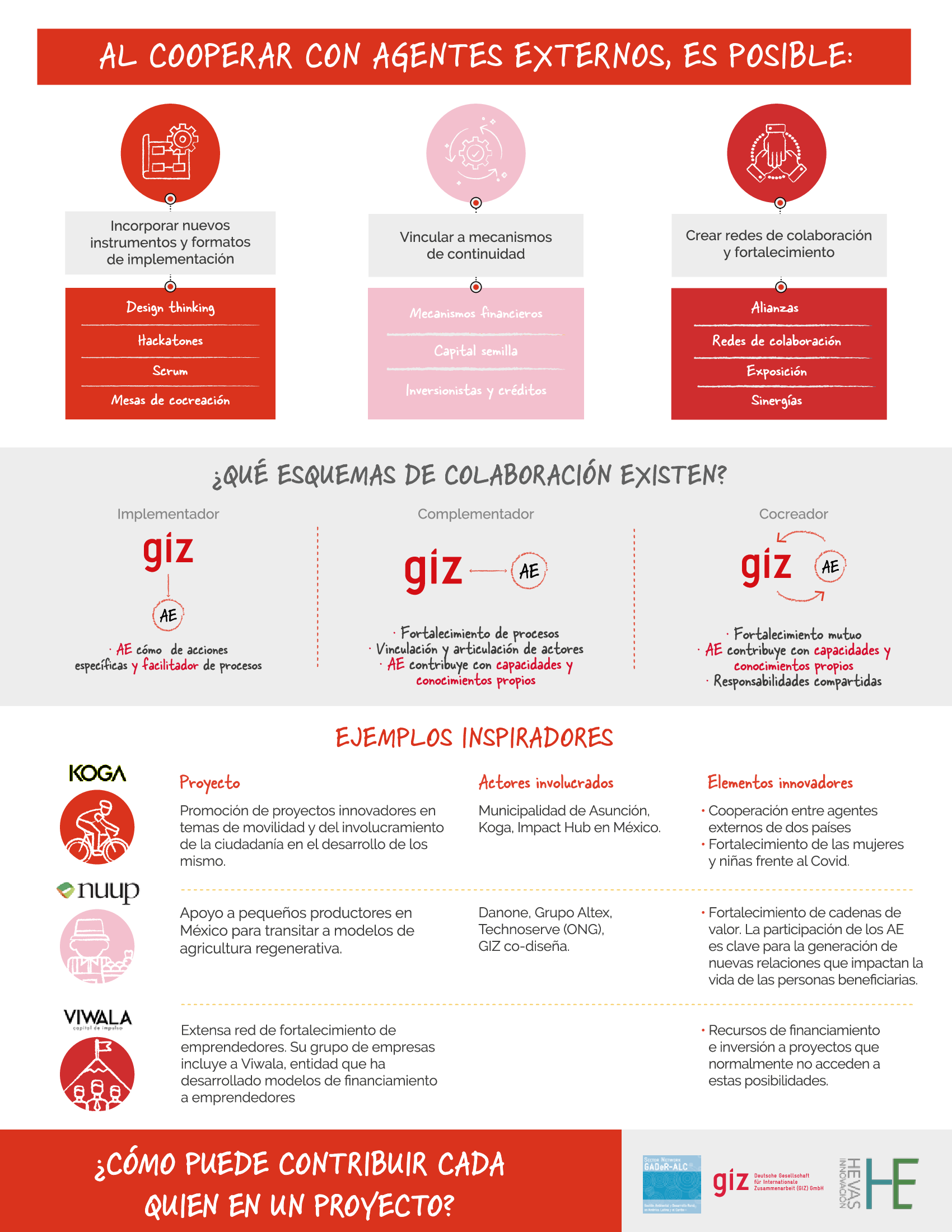
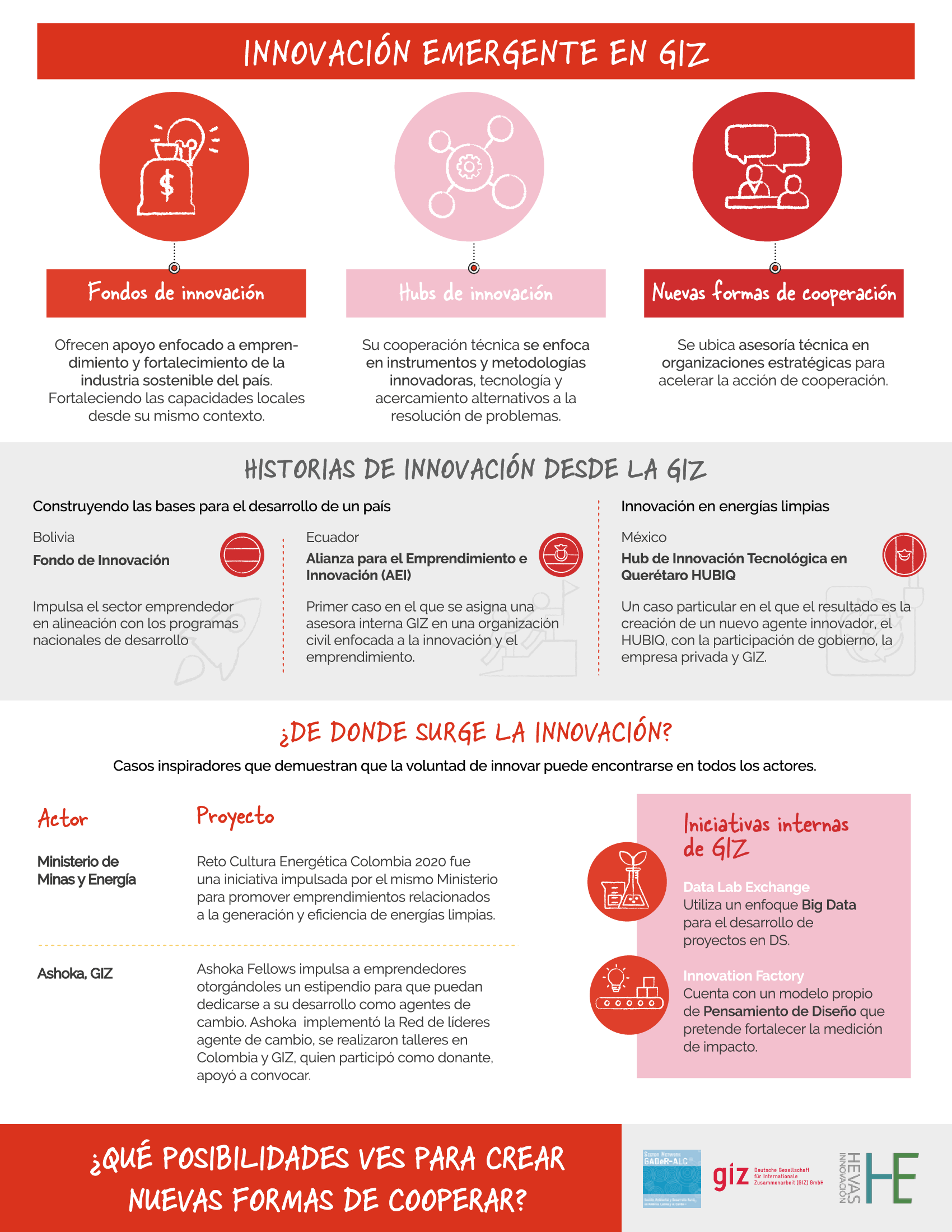
Finally, the webinar Regional Dialogue on Innovative External Cooperations took place: a space for exchange between GIZ and external projects, to present the results of the study. The event was attended by 30 people, who discussed the lessons learned from working with other types of actors and innovative methodologies, as well as their implications for international cooperation regarding sustainable development.
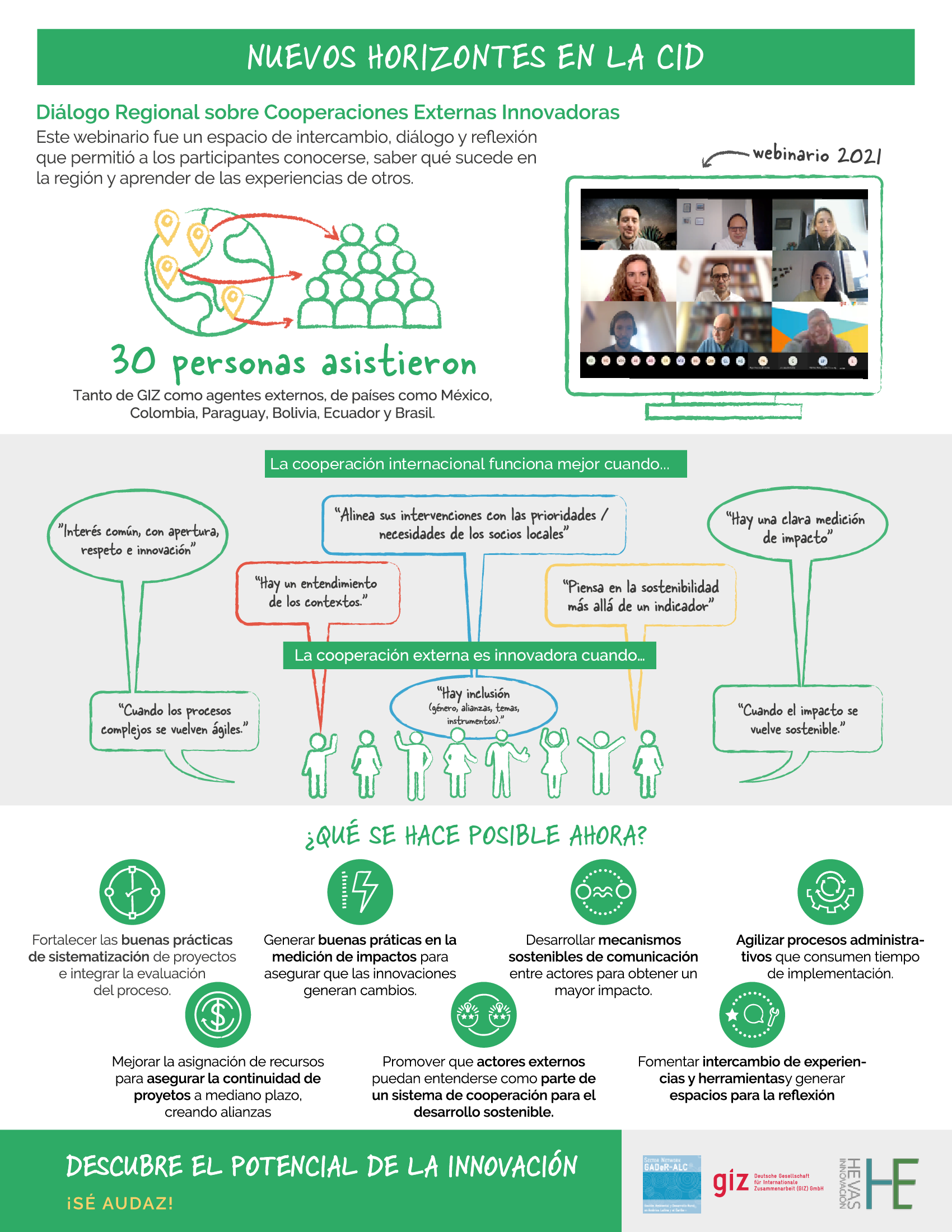
For more information on the work and the results of the work stream Regional Dialogue on Innovative External Cooperations please download the complete study.
Contact: Juan Carlos Mendoza, Technical Advisor of the CONECC project.
Get to know the Secretariat of the GADeR-ALC Sector Network to learn more about this and other work streams in the Latin American region.

